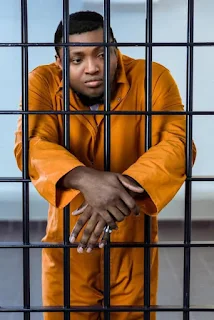Simon Ekpa Extradition to Nigeria?
By Profiles International Human Rights Advocate
“Nonviolence means avoiding not only external physical violence but also internal violence of the spirit.”
“Nothing good ever comes of violence.”
The arrest and possible extradition of Simon Ekpa—a dual citizen of Finland and Nigeria—has emerged as one of the most closely watched legal developments in Africa-Europe diplomatic relations. Finnish authorities arrested Ekpa on Thursday, November 21, 2024, on charges of inciting terrorism and promoting violence. The Päijät-Häme District Court in Lahti ruled to detain him on probable cause for publicly inciting crimes with terrorist intent.
The charges stem from his alleged use of social media to spread separatist propaganda and incite violence in Nigeria’s Southeast region—activities Finnish investigators say are directly linked to violent unrest, including attacks on civilians and security forces. His arrest followed sustained diplomatic pressure by the Nigerian government on Finland to address the escalating crisis believed to be fueled by his broadcasts and commands.
Since his detention, one cannot help but ask: Has the Southeast region truly seen a reduction in violence? Or are there other players who continue to disrupt peace in the area? The answer remains complex, but many agree that Ekpa has become a symbolic figure—if not a central actor—in the digital orchestration of chaos in the region.
Though often incorrectly described as a factional leader of the Indigenous People of Biafra (IPOB), IPOB has repeatedly and unequivocally dissociated from him, reinforcing its non-violent ideology. Instead, Ekpa has spearheaded a self-styled group known as the “Biafra Republic Government-in-Exile” and leads the “Autopilot” faction, alleged to be linked to a militant arm known as the Biafra Liberation Army (BLA). This group is accused of executing kidnappings, imposing unlawful sit-at-home orders, and carrying out attacks on both civilians and government institutions.
So, can the Päijät-Häme District Court approve Simon Ekpa’s extradition to Nigeria?
The answer lies at the intersection of international law, national sovereignty, and human rights obligations.
Traditionally, Finland is cautious when it comes to extraditing its citizens, especially to countries outside the European Union or Nordic bloc. Such decisions are not routine—they are made under exceptional circumstances and require assurances of fair legal treatment and adherence to due process. In this case, both Finland and Nigeria are signatories to the Rome Statute, offering a legal framework for such cooperation.
Should Finland approve the extradition request—and if all legal prerequisites, including compelling evidence and human rights safeguards, are met—Ekpa may face trial in Nigeria. Yet this approval must be evaluated within the broader context of whether Nigeria can guarantee a fair trial, access to competent legal counsel, and protection from political persecution.
These are not abstract concerns. Past high-profile legal cases in Nigeria have raised red flags among international observers. For Finland to proceed responsibly, the decision must not only comply with its domestic legal standards but also meet its obligations under international human rights treaties.
Ekpa’s case could set a precedent. It serves as a litmus test for how democratic societies manage cross-border extremism allegations—especially when digital technologies are involved. His activities, conducted largely online and from abroad, underline the growing challenge of diaspora-based activism spilling into violent action at home.
But extradition, while a legal tool, is not an end in itself. It must be exercised with caution and integrity. If Ekpa is guilty of inciting violence, then justice—rooted in the rule of law—must prevail. The process, however, must be fair and free from vengeance. Justice must not only be done but must be seen to be done.
Moreover, the public narrative must be carefully managed. Reckless attempts to conflate Simon Ekpa’s activities with IPOB’s leadership misinform the public and risk inflaming tensions. The Biafra issue remains deeply sensitive, and precision in language is essential.
The world is watching.
The Southeast region of Nigeria must not become a permanent killing field. If the charges against Simon Ekpa are proven, accountability is imperative. But such accountability must come through legitimate legal means—not through political expediency or vendetta.
Ultimately, the question is not only can Simon Ekpa be extradited to Nigeria—but whether the systems tasked with delivering justice, in both Finland and Nigeria, will uphold the principles of fairness, transparency, and human rights that are essential to global democracy. For, in the end, we must remember: Not
 |
| Simon Ekpa Extradition to Nigeria? |
hing good ever comes of violence.
Comments